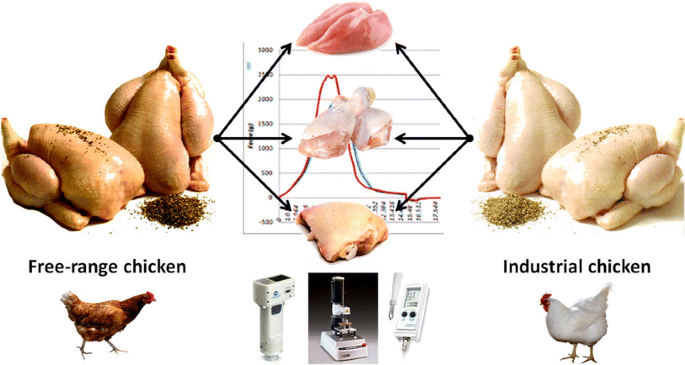Understanding Poultry Broiler Meat and Its Composition
Poultry broiler meat, primarily derived from chickens specifically bred and raised for meat production, is a crucial component of the global diet. This meat is prized for its nutritional value, affordability, and versatility in culinary applications. To appreciate the full scope of broiler meat's significance, it is essential to delve into its composition, nutritional benefits, and the factors influencing its quality.
Composition of Broiler Meat
Broiler chicken meat is composed of various nutritional elements, each playing a significant role in its value as a food source.
1. Proteins
Proteins are the most prominent component of broiler meat, constituting about 20-23% of its weight. These proteins are rich in essential amino acids, which are vital for human health. Key amino acids found in broiler meat include lysine, methionine, and tryptophan, which are crucial for muscle growth, tissue repair, and enzyme production.
2. Fats
Fat content in broiler meat varies depending on the cut and the diet of the chicken. On average, broiler meat contains 2-10% fat. This includes both saturated and unsaturated fats. Unsaturated fats, particularly omega-3 and omega-6 fatty acids, are beneficial for cardiovascular health. The presence of intramuscular fat, or marbling, also affects the meat’s flavor and tenderness.
3. Water
Water is a major component of broiler meat, making up about 65-75% of its weight. The high water content contributes to the meat’s juiciness and texture. Proper water retention is crucial during cooking to maintain the meat's palatability and nutritional value.
4. Minerals
Broiler meat is a good source of essential minerals. Key minerals include phosphorus, which is important for bone health; selenium, which acts as an antioxidant; and zinc, which supports immune function. Iron, vital for oxygen transport in the blood, is also present in significant amounts.
5. Vitamins
Vitamins in broiler meat include B-complex vitamins like niacin (B3), which aids in metabolism; vitamin B6, important for brain health; and vitamin B12, essential for red blood cell formation. Broiler meat also contains small amounts of vitamin A and vitamin E, which contribute to immune health and skin integrity.
Factors Influencing Broiler Meat Quality
Several factors influence the quality and composition of broiler meat, including genetics, diet, and rearing conditions.
1. Genetics
Selective breeding has led to broiler chickens with desirable traits such as rapid growth, efficient feed conversion, and superior meat quality. Genetic improvements continue to enhance these traits, ensuring a steady supply of high-quality meat.
2. Diet
The diet of broiler chickens significantly impacts the nutritional composition of the meat. Feed typically consists of grains, protein supplements, vitamins, and minerals. The inclusion of specific ingredients, such as flaxseed or fish oil, can enhance the levels of beneficial fatty acids in the meat.
3. Rearing Conditions
Rearing conditions, including housing, temperature, and stress levels, affect the growth and health of broiler chickens. Optimal conditions ensure better growth rates and meat quality. Stressful conditions can lead to issues such as tough meat and higher fat content.
4. Processing
Post-slaughter processing, including chilling, deboning, and packaging, also plays a role in determining the final quality of broiler meat. Proper handling and storage are essential to prevent spoilage and maintain the meat's nutritional value.
Health Benefits of Broiler Meat
Broiler meat offers numerous health benefits due to its rich nutritional profile.
1. High-Quality Protein Source
The high protein content supports muscle development, repair, and overall body function. It is particularly beneficial for growing children, athletes, and those recovering from illness.
2. Low in Saturated Fat
Compared to red meats, broiler meat is relatively low in saturated fat, making it a healthier option for heart health. The presence of unsaturated fats, especially in pasture-raised chickens, further enhances its cardiovascular benefits.
3. Rich in Essential Nutrients
The vitamins and minerals found in broiler meat support various bodily functions. For instance, B vitamins help in energy metabolism, iron is crucial for oxygen transport, and selenium has antioxidant properties.
4. Versatile and Accessible
Broiler meat is versatile in cooking and can be included in a variety of dishes, making it a practical choice for diverse diets. Its affordability and widespread availability contribute to its role in food security globally.
Conclusion
Poultry broiler meat is a vital part of the human diet, offering high-quality proteins, essential fats, vitamins, and minerals. Its composition and quality are influenced by genetic, dietary, and environmental factors. With numerous health benefits and culinary applications, broiler meat continues to be a staple food item, contributing significantly to nutritional well-being and food security around the world.
#poultry #chicken #breeder #broiler #farming #layer #poultrytechnology poultrytechnology.blogspot.com #meat #feed #chick #DOC #veterinarian #poultrytechnology #animal #husbandry #latest #research #feedadditives #vaccination #diseases #poultrydiseases #diagnosis #animal #egg production #concusion #chicken feed #cooking #composition






Post a Comment